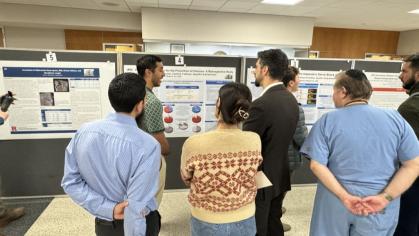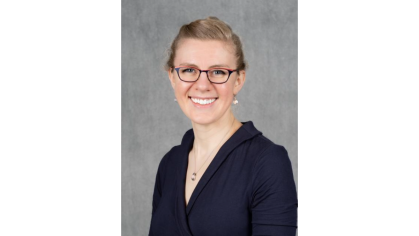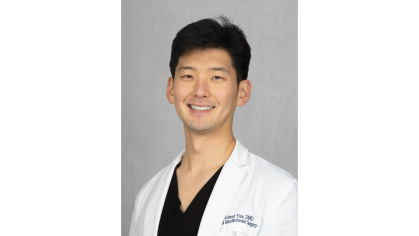Sleep Apnea Expert Offers Training, Treatment
High blood pressure, ADHD and snoring all have one thing in common. They can potentially be symptoms of obstructive sleep apnea, a condition that interrupts breathing during sleep, resulting in reduced levels of oxygen in the blood.
RSDM clinical professor Dr. Davis Thomas, an expert in sleep disorders, has been training students to recognize the signs.
“Sleep disorders are an explosive branch of medicine right now,’’ he says. “Doctors are starting to realize how much problems with sleep are affecting patients.’’
According to Thomas, more than 20 million Americans have an undiagnosed sleep disorder, and one of the most common conditions is obstructive sleep apnea, which can easily be screened by a dentist.
Bruxism, or grinding of the teeth, is often a telltale sign of the condition, and dentists should be ready to check for other signs of apnea, such as excessive sleepiness during the day and hypertension.
Sleep apnea takes such a toll on the body because it disrupts the sleep cycle, cutting short the amount of Delta wave sleep, a deep phase of sleep that restores brain power, says Thomas. Insufficient amounts of Delta sleep can impact focus, attention and mood, in addition to cardio pulmonary functioning.
Davis, who studied sleep apnea at the University of Sydney in Australia, an international leader in sleep disorder research, says that undiagnosed sleep apnea is often the culprit behind a range of conditions including ADHD, high blood pressure, heart attacks and stroke.
Treatment for obstructive sleep apnea includes a mouthpiece fitted by dentists that thrusts the jaw forward during sleep. For many, it’s a preferable alternative to a CPAP machine, which exerts airway pressure and requires patients to wear a mask at bed time.
Obstructive sleep apnea is diagnosed after the patient completes an overnight sleep study where they are monitored continuously as they slumber.
Davis, who is currently researching the effects of sleep on pain management, says that screening patients for the disorder is easy to do and can have a tremendous impact.
“You can save a life,’’ he says.




